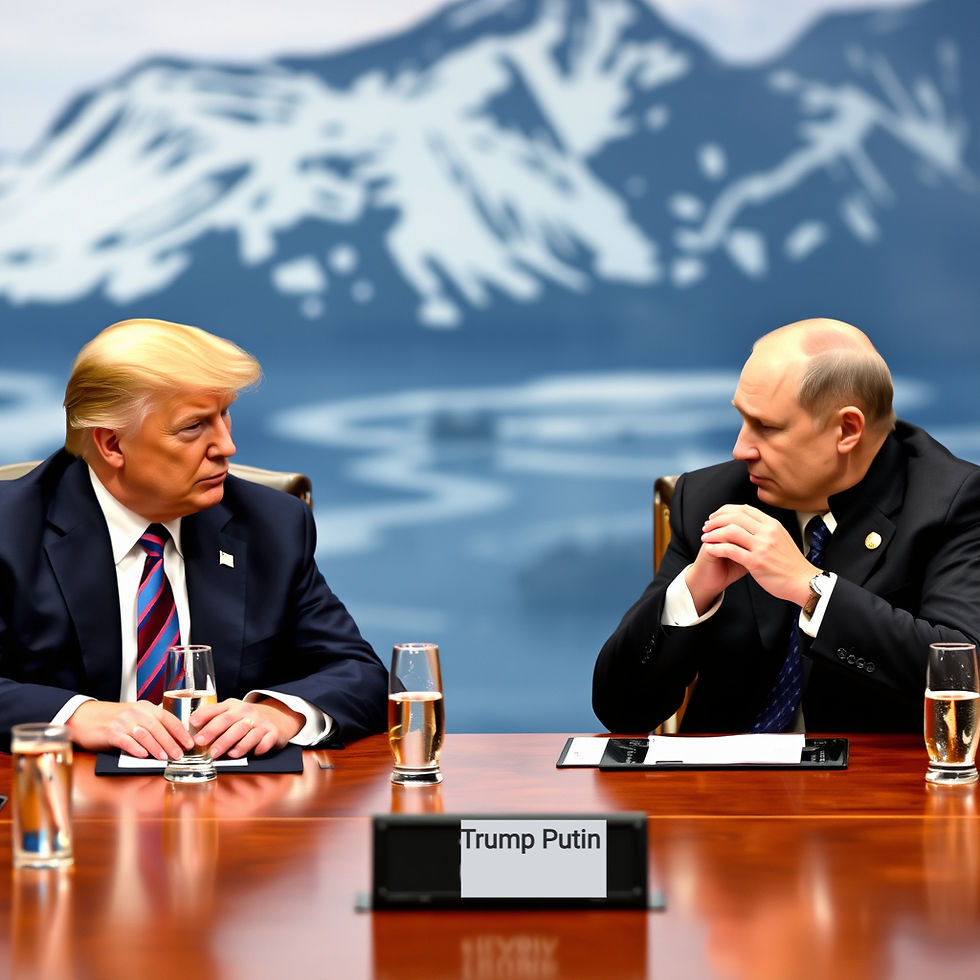Geopolitics: A New Dangerous World where Force Replaces Diplomacy
- rkbhonsle
- Sep 11, 2025
- 4 min read
Updated: Sep 12, 2025

From Europe to the Middle East a new phase of escalations is a stark warning where force has replaced diplomacy while on the political front Nepal has shown how Gen Z can through violence raise the ante against corruption and misrule
The last three and a half years or so have seen escalations on every continent in terms of wars and conflicts except the Americas which has in seen political turmoil. The latter particularly in the United States is adding to overall uncertainties faced by the world in perceived acceptance of Washington to allow allies – Israel and global competitors – Russia to continue to use force.
U.S. President Donald Trump’s elections statement that he would stop the war in Ukraine in one day on coming to office may have sounded naïve and more so when almost nine months in the White House the Ukraine War rages on.
Potential Escalations
And there is a new escalation with Russian drones entering Poland for the first time on September 09 leading to Warsaw invoking Article 4 of NATO compact calling for engagement with allies on a crucial issue impacting security of the alliance. Was this an escalation, provocation, signalling, threat or an accident remains to be seen as no statement has been issued by Moscow so far
Not just that but Israel marked a new escalation and there is no fuzziness over that one unlike the Russians – Jerusalem carried out air strikes in Doha, the capital of Qatar allegedly on the Hamas political leadership ironically engaged in deliberations on release of Israeli hostages by the group in Gaza.
This has set even the otherwise staid and uncommitted Indian Prime Minister Narendra Modi to come out openly to condemn the attack without naming Israel and holding direct talks with the Qatar Emir.
Thus, underlying the fragility of the support that Israel may now be facing in its attempt to use force to create a new Greater Israel.
United States so far has remained uncommitted on both the fronts Poland and Qatar despite President Trump stating that he was surprised by Israeli action, indicating that the world will have to do without Washington’s “guiding light” having lost the “moral compass”, if not the ability to perceive the challenges faced in an increasing dark global scenario.
NATO E 5 Defence Ministers Meeting
Underlying seriousness of the incursion of Poland’s and thus NATO airspace, a high-level E5 defence ministers meeting was held in London, focusing on European security threats, particularly violation of Polish airspace by Russian drones.
The Transcript of the press meeting denoted that the overall tone was one of solidarity, resolve, and a shared recognition of the new security environment confronting Europe and NATO.
UK Defence Secretary John Healey opened the statements by emphasising the unprecedented nature of recent Russian aggression, highlighting the closure of Warsaw airport and the downing of Russian drones by NATO jets. He reaffirmed the UK's commitment to Poland and NATO, stressing that such acts only serve to strengthen NATO unity and support for Ukraine.
Healey also mentioned ongoing UK initiatives to bolster NATO air defence over Poland and underscored the necessity of continued support for Ukraine, both for current security and future peace.
The Italian, German, French, and Polish representatives echoed these sentiments, universally condemning the attack as a targeted provocation against Poland and NATO as a whole. Germany outlined its practical contributions, such as the deployment of Patriot batteries and Eurofighters to Poland, while France reiterated its readiness to reinforce air defences and support Ukraine.
The Polish representative called for further NATO coherence and practical measures to strengthen the eastern flank’s defence capabilities, noting the collective and rapid response to the crisis as a demonstration of alliance solidarity.
The officials generally agreed that whether or not the attack was intentional, it tested NATO’s resolve and air defences and required a unified and robust response.
The meeting demonstrated the NATO ministers commitment to strengthen collective defence, and maintain unity in the face of evolving threats.
Political Crisis
On the political front, in Europe France has seen President Emmanuel Macron nominating Laming Sebastian as the new Prime Minister the fifth in the last two years as the country is facing the prospects of a budget passage by the parliament.

And in Nepal the Himalayan state in South Asia. Prime Minister KP Sharma Oli had resigned following the deaths of 19 youths now 30 during what is known as Gen Z protests against corruption and the social media ban. With a government vacuum and a constitutional impasse the process of forming an interim government has been initiated in line with the demand of those youths for a fresh mandate.
Chief of Army Staff Sigdel held discussions with representatives of Gen Z youth, Sushila Karki a former Chief Justice of the Supreme Court is seen as a possible head to run the interim government.
A decisive discussion is set to take place on September 11 [ today], under the coordination of the Nepal Army, between President Ram Chandra Paudel and representatives of Gen Z youth on leadership of the interim government.
Since the Gen Z representatives have already decided on the name of former Chief Justice Sushila Karki as the new Prime Minister of the interim government, today’s discussion will give it formal approval.
However, this may not be without glitches as Nepali Congress (NC) and the CPN-UML -- the two largest parties in the federal parliament -- have called for the process to stay within the bounds of the constitution. This is unlikely to be acceptable to Gen Z leadership. Thus uncertainty looms.


Comments